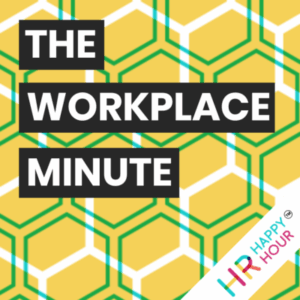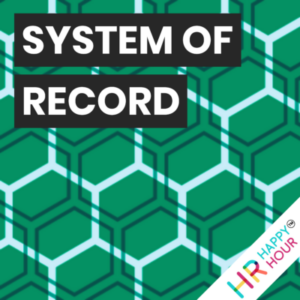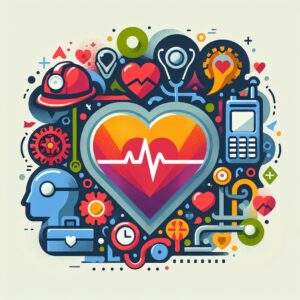Focus on Healthcare: Connecting Better Employee Experiences with Improved Patient Outcomes
April 13, 2023
For healthcare organizations, delivering the highest quality care, improving patient outcomes, and meeting the needs of patients, families, and partners demands having the optimal amount of talented people with the needed skills and competencies in the right places at the right time. Managing these talent needs requires modern, integrated, and innovative HCM technology that helps healthcare organizations oversee essential workers from the attraction and hiring stages through development and deployment.
Let’s examine the primary challenges in healthcare human capital management and how today’s HCM technologies are evolving to help healthcare organizations meet their talent management needs while providing healthcare workers with positive and meaningful employee experiences.
Employee Wellbeing
Since the onset of the COVID-19 pandemic, frontline healthcare workers have been experiencing unprecedented levels of on-the-job stress and burnout. One survey from the Kaiser Family Foundation showed that 55% of healthcare workers reported feeling burned out from chronic workplace stress during the pandemic, while about 30% have considered leaving the healthcare field for good. These pandemic-related effects and the subsequent increase in healthcare workers making changes to reduce stress and burnout, even going as far as leaving healthcare altogether, have placed a strain on HCM leadership and threatened the quality and timeliness of patient care.
Today’s healthcare workers have a greater focus on their wellbeing, want to work for an organization that values diversity, equity, inclusion, and sustainability, as well as mental health, and demand more flexible work options and more individual autonomy. HCM and healthcare leaders are more focused on employee wellbeing and are seeking effective strategies to improve the workplace experience in their facilities.
Modern HCM technology, like Oracle Cloud HCM plays an important role in supporting healthcare workers’ overall wellbeing. Some key elements of a technology-supported wellbeing approach include:
- Updating employee benefits portals to allow workers to access information quickly and easily about wellbeing resources, like paid leave or wellness days, as well as mental health resources such as therapy, books, articles, or exercises that address burnout directly.
- Deploying mobile technology tools to help managers and employees maintain regular check-ins and reminders to schedule one-on-one meetings. The Oracle Touchpoints capability excels in this area.
- Tracking data gathered through pulse surveys to determine how factors such as stress, burnout, and disengagement are trending for an individual or team and how the trends compare to the organization.
- Utilizing AI digital assistants and other “smart” time-saving technologies to free up healthcare professionals for higher-level tasks and to create time and opportunities for health systems and HR to support burnout-reduction activities.
Technology alone can’t solve the healthcare worker burnout problem, but it can provide important support, guidance, and intelligence that can help alleviate some of the factors that contribute to burnout and raise awareness of the problem for organizational leadership.
Talent Retention and Skills Development
With the continued persistence of industry-wide talent shortages, healthcare organizations must focus on retention of their important, frontline staff. At the same time, organizations are challenged by the need to upskill healthcare staff on new methods, tools, protocols, and new diseases that can emerge – as was the case with COVID-19. There are two primary levers, outside of the wellbeing focus we previously discussed, that can positively impact talent retention.
First, organizations should focus on improving the overall employee experience. The employee experience encompasses a variety of factors and touchpoints, from “hire to retire”. Organizations usually have multiple and sometimes competing initiatives on which to focus employee experience enhancement projects. These can range from refreshing career sites to updating candidate engagement and communication processes. This could be a revamped onboarding process that quickens a new employee’s adjustment period and speeds up time to productivity. Or it can be as simple as paying employees accurately and on time – every time.
Healthcare HCM leaders have plenty of opportunities to build more employee-friendly and accessible experiences for their workers – at every stage in the employee lifecycle. When developing improvements to employee experience, HCM leaders can leverage the capabilities, design, and modern approaches to the user experience that the leading HCM technology providers have spent years developing. Having an experienced technology partner, who has the benefit of working with thousands of customers (and knows the ins and outs of the talent goals and challenges of the healthcare industry)to develop, refine, and enhance their product offerings, assures the healthcare organization that not only will the new technology be at the forefront of innovation, but the process design, configuration capabilities, data security, and reliability will all be first rate.
So, beyond some of the “basics” of technology-supported employee experience initiatives, the newest HCM technology solutions go further – giving healthcare HCM leaders the ability to perform tasks like:
- Proactive monitoring of employee certification and competencies so that needed training and development is pushed to employees as and when it is needed – helping them feel supported and setting them up for success.
- Greater transparency on internal job opportunities, short-term gigs and projects, and full support for internal mobility – helping connect employees to the organization. The award-winning Oracle Opportunity Marketplace is the leading example of intelligent technology that links employees to internal opportunities for growth and skills development.
- Enabling employees to understand, capture, and refresh skills needed to remain productive and proficient in their current roles through an AI-powered skills inventory, which is essential to deliver quality patient care and develop the skills needed to support career growth objectives.
Focusing on improving the employee experience is clearly a priority for healthcare organizations today, as it strengthens the employer’s value proposition in a persistent talent market. But improved employee retention and enhanced skills development also benefit patients and their families. And we can’t forget the connection between patient experience and employee experience – they go hand in hand. What will help employees in delivering their essential services will ultimately benefit all stakeholders.
Staffing and Productivity
Talent shortages in healthcare, which was already a problem for some providers before the onset of the COVID-19 pandemic, are expected to become even more widespread and problematic. On a global level, the World Health Organization (WHO) predicts that a worldwide lack of healthcare professionals will leave more than 18 million healthcare positions unfilled by 2030. And since healthcare organizations are generally unable to pivot or change their operating models, after all, patients need care no matter the day or time, they are often forced into alternative methods to supply skilled clinicians and other staff to meet patient needs. Typically, these staffing challenges lead to higher cost models like contact staff or traveling nursing – which can lead to increased labor expenses and may impact the quality and consistency of patient care.
Not having the right staff with the right skills when and where they are needed in a dynamic environment can compromise the quality of patient care and the availability of services. But progressive healthcare providers are increasingly turning to modern HCM technology solutions to support them in meeting these challenges.
Some key areas where modern technology can help healthcare organizations with staffing and productivity include:
- Using demand data from the electronic health record system to anticipate labor requirements, understand what skills workers need to possess, and determine which location and department need specific talent.
- Utilizing enhanced reporting and analytics, like are available in Oracle Fusion HCM Analytics, to help understand, manage, and plan workforce needs – balancing cost, scheduling and needed quality of care. The key to this step is consolidating HCM technology systems into one, unified suite and platform. By bringing everything together into a single place, leading healthcare HR teams can enable the comprehensive, cross-functional reporting and analysis needed to manage their complex workforces.
- Leveraging employee listening and survey tools to solicit feedback and gain insights into workforce challenges and make these challenges more visible. HCM leaders can then discover where healthcare professionals need the most support and where skill gaps exist within the organization, which allows them to implement strategies to address these issues.
In a long-term, difficult labor market environment for healthcare employers, it is necessary for leaders to deploy the best technology solutions that can aid in the identification, recruitment, development, and long-term success of their staff. Fortunately, modern HCM technology enables these kinds of comprehensive strategies from development to execution, all while creating additional data and insights from which strategic talent management decisions can be made.
Conclusion
Healthcare HCM leaders face many challenges. But solving these challenges is essential, as the ability of healthcare organizations and their employees to meet critical patient care needs and drive better outcomes is among the most important organizational imperatives in all modern society. Healthcare HCM leaders can succeed in both these goals – improving patient outcomes and becoming employers of choice by creating an employee experience that reflects their organization’s values, fosters employee wellbeing, helps clinical and nonclinical staff develop skills and grow in their careers, and provides data and technology solutions to improve HCM decision-making, empowering everyone to be their best. Key to ensuring that the HCM technology in place supports these goals is working with a technology provider with dedicated focus and solutions for the unique needs in healthcare – exemplified by Oracle’s continued development in HCM technology that connects better employee experiences to improved patient outcomes.
After over three years of disruption, change, and unimaginable stress on healthcare teams, implementing the right technology support with the best partner organization is one of the most important things healthcare HCM leaders can do, both for today and for whatever surprises and changes are coming next.
Note: Our friends at Oracle Cloud HCM are keenly focused on the challenges facing healthcare organizations and HCM leaders and have developed comprehensive solutions tailored for HCM healthcare needs. Please visit https://www.oracle.com/industries/healthcare/hcm/ to learn more.
How we can help
Led by Trish Steed and Steve Boese, H3 HR Advisors harnesses over 40 years of experience to delivery HCM insights and guidance to global organizations.
H3 HR Advisory services
By leveraging technology, analytics, and our deep industry knowledge we can help you to reposition your workforce and ensure that you have the right people with the right capabilities in the right roles to positively impact the growth of your business.
HR Happy Hour Podcast Network
Created in 2009, The HR Happy Hour Show is hosted by Steve Boese and Trish Steed and is the longest continuously running internet radio show and podcast on Human Resources, HR Technology, Talent Practices, Workplace and Leadership topics.
H3 HR Speaking Services
We work closely with every client to customize your content - keynotes, webinars, research, infographics, and buyer’s guides - to inspire, educate and inform the audience enabling you to reset and realign your organization for a talent-led breakthrough.
Get in touch
Talk to us today and find out how we can help you and your organization leverage HCM technology to attract, onboard, retain and manage top talent.




